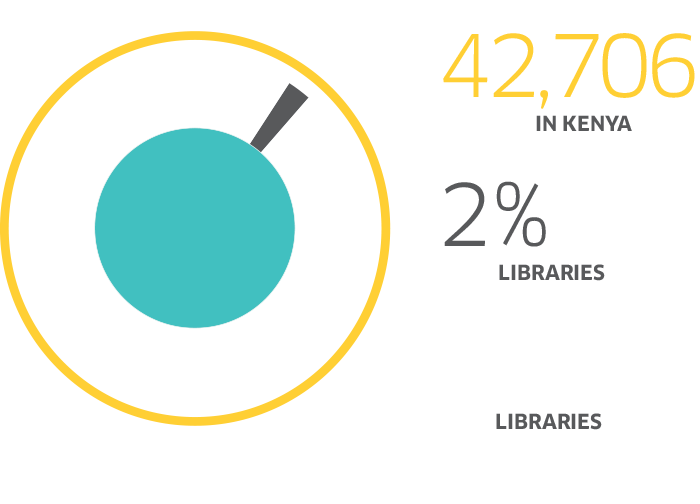THE NEED
The need in Kenya for school libraries is urgent and evident. Their alarming scarcity in schools disproportionately affects children from low-income families, resulting in significant knowledge gaps and hindering their access to opportunities and development into internationally competitive citizens. We want to change that.

KEY'S IMPACT OVER 15 YEARS
KEY libraries have directly and immediately improved the quality of education (academic, cultural and Civic) in schools in Ghana, Tanzania and across Kenya for:44,233
STUDENTS REACHED ACROSS 46 SCHOOLS IN A WIDE RANGE OF SETTINGS
5:6
RATIO OF GIRLS TO BOYS
2018
KEY DRAFTED KENYA'S FIRST NATIONAL POLICY AND GUIDELINES FRAMEWORK FOR SCHOOL LIBRARIES
2023
KEY LAUNCHED KENYA'S FIRST PROFESSIONAL DEVELOPMENT WORKSHOP FOR SCHOOL LIBRARIANS
